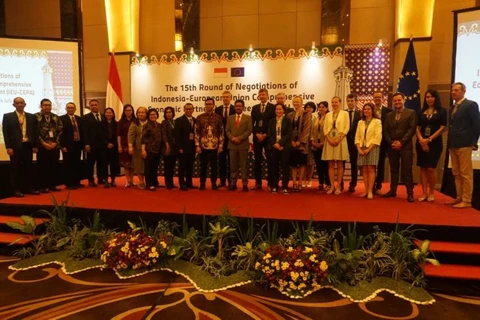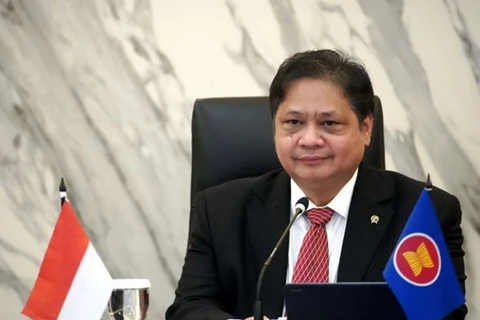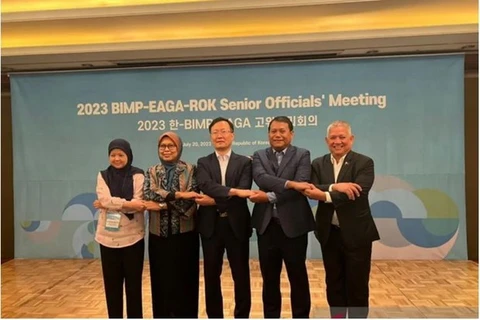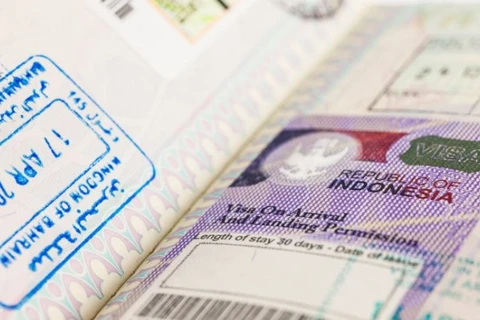Jakarta (VNA) – Indonesia’s economic growth is the second-highest among G20 countries, Coordinating Minister for Economic Affairs Airlangga Hartarto said on July 26 at the National Strategic Projects (PSN) conference in Jakarta.
Hartarto said that Indonesia’s economic growth is higher than other countries, even among the largest countries in the G20. The country’s economic growth stands at 5.03%, making it the second-highest in the group of 20 leading economies (G20).
Despite the current complex and multiple levels of global economic problems, such as inflation, wars, and the energy crisis, Indonesia’s economic position remains quite strong, Hartarto said.
Furthermore, to escape the middle-income trap by 2035, Indonesia must take advantage of the demographic bonus that will last for the next 13 years, he added.
According to Hartarto, the key to significant economic growth is infrastructure development. Therefore, PSN projects are being prepared comprehensively to support national economic transformation policies in the short and long term.
Regarding short-term policies, PSN projects are being implemented through several programmes including those that provide incentives to attract investment in special economic zones (KEK), those for industrial estates development, accelerated regional development, economic equity, food sovereignty and the issuance of derivative regulations of Law Number 6 of 2023 concerning Job Creation.
Hartarto said that for long-term policies, PSNs are implemented by increasing connectivity through toll road projects, railways, airports, ports, and other basic infrastructure.
Additionally, PSNs focus on strengthening national energy security through the provision of oil and gas infrastructure, electricity, and processing refineries, as well as accelerating digital transformation and the production of digital talent./.

Indonesia to launch national crypto exchange in July
Indonesia's Commodity Futures Trading Supervisory Agency (Bappebti) has planned to debut a national cryptocurrency exchange in July.
























